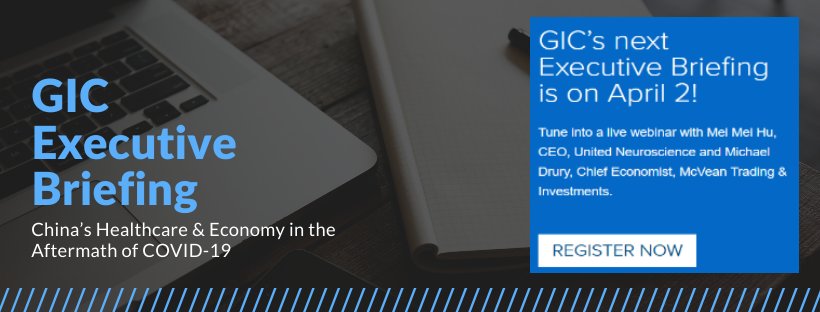Dear Readers,
While the United States and much of the world outside of Asia is still trying to "flatten the curve" in response to the coronavirus pandemic, China is posturing itself for a quick comeback. Can we believe their numbers and agree that their virus-response methodology was effective?
USA Today along with Andy Mok, a fellow at the Center for China and Globalization (a public policy think tank based in Beijing), assert "that even in Beijing, about 750 miles north of Wuhan, coronavirus rules were established requiring residents to have a formal pass to get in and out of their apartment buildings and homes. At the outbreak's height in Wuhan, nobody was allowed in or out of the city, and access to food stores was limited to once every few days." (https://www.usatoday.com/story/news/world/2020/04/01/coronavirus-covid-19-china-radical-measures-lockdowns-mass-quarantines/2938374001/)
USA Today goes on to say, "Video footage published by the Australian Broadcasting Corp., the country's state-funded broadcaster, showed Chinese authorities in Wuhan welding doors to entire apartment buildings shut – with residents inside – to enforce quarantines. The footage, collected from Chinese social media users, could not be independently verified by USA TODAY.
"Mok questioned whether Americans, raised on a diet of individualism and civil liberties that has informed every aspect of life from travel to economic institutions, would be willing to abide by invasive virus detection and containment methods that require a strong commitment to 'collectivism' and abridged freedoms."
We wrote previously that the world needs strategies to choreograph both the physical distancing measures designed to reduce transmission and the vital work of keeping critical production and services going. An antibody test for COVID-19 (see Gretchen Vogel’s article, “New blood tests for antibodies could show true scale of coronavirus pandemic,” https://www.sciencemag.org/news/2020/03/new-blood-tests-antibodies-could-show-true-scale-coronavirus-pandemic) is still a crucial component that can help us to find balance in our response.
Earlier this week, we re-published the McVean Weekly Economic Update by Michael Drury (https://www.cumber.com/cumberland-advisors-guest-commentary-maybe-the-world-is-not-ending/) and we'd like to follow up and extend his invitation to an executive briefing organized by the Global Interdependence Center (GIC) called, "China’s Healthcare & Economy in the Aftermath of COVID-19".
Are there lessons in the Chinese response hidden between their state-supplied figures and rigorously controlled press that we can adopt to accelerate our own recovery? Time will tell. Along with more trustworthy observations.
The GIC webinar streamed on, April 2, 2020. It featured friend and colleague Michael Drury. He's McVean Trading’s Chief Economist, and he discussed the economic recovery in China through his lens of experience that includes extensive travel within China. Joining him was Mei Mei Hu, CEO of United Neuroscience, who discussed COVID-19 testing, vaccine developments, and insights from her firm’s fight against the COVID-19 battle earlier in the year.
The briefing is now prerecorded and free at this link: https://www.interdependence.org/events/chinas-healthcare-economy-in-the-aftermath-of-covid-19/

This was the second in the series of executive briefings by GIC. The first was "Analyzing Pandemics: Economic & Policy Impacts," and it's also available on demand at GIC's website (https://www.interdependence.org/events/analyzing-pandemics-economic-and-policy-impacts-series-gic-virtual-event/). It features Jeffrey Gold, MD, Chancellor of the University of Nebraska Medical Center, one of our nation’s top facilities on infectious disease, which handled early cases of Ebola and COVID-19. We found his talk to be highly informative.
At Cumberland, we venerate those who advocate for free speech and those who try to hold their governments accountable throughout this pandemic and we have special admiration for the hundreds of thousands of nurses and doctors who risk – and sometimes lose – their lives to care for the afflicted. Please be safe.
David R. Kotok
Chairman of the Board & Chief Investment Officer
Email | Bio

